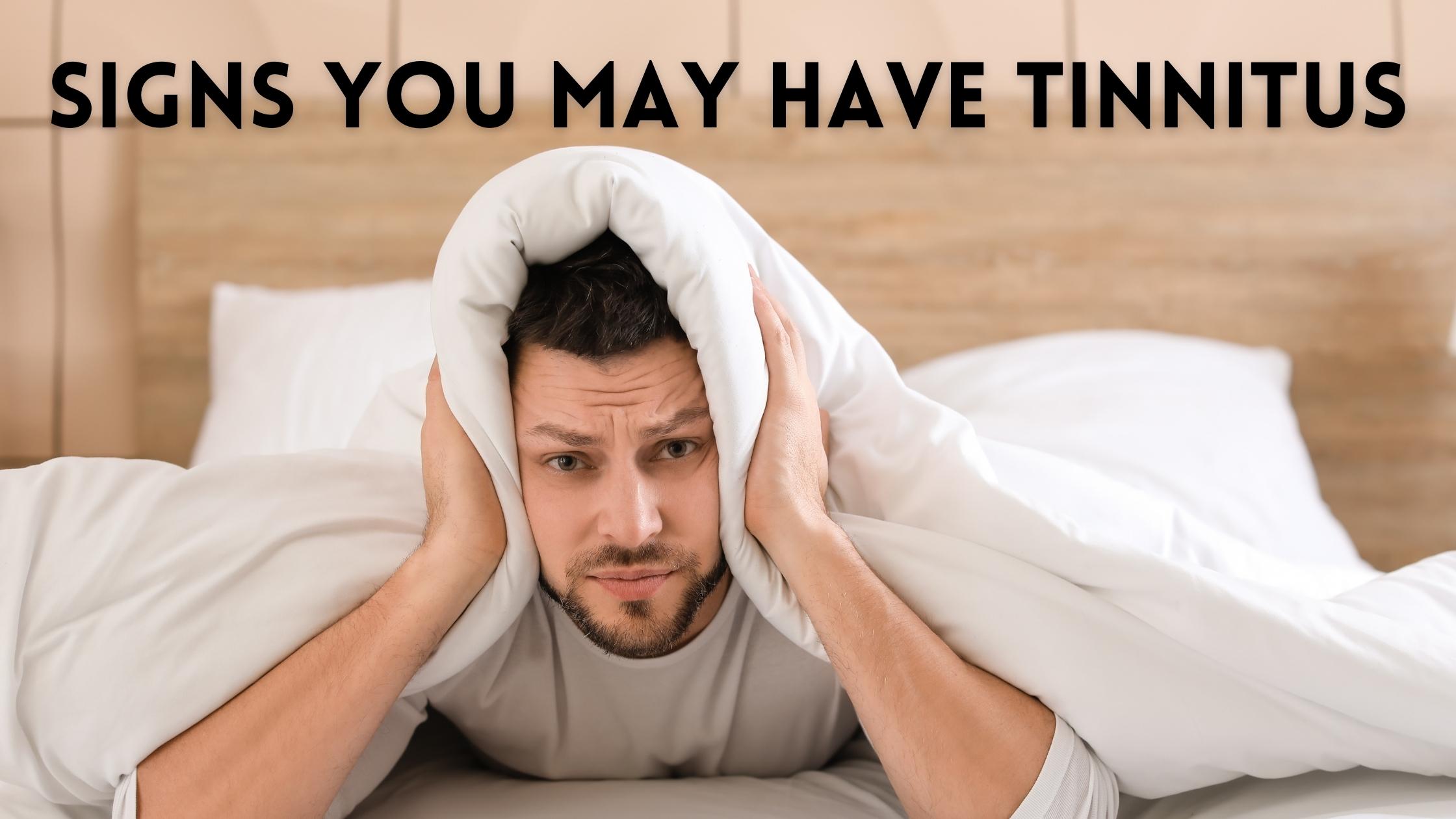If you have ever been to a noisy concert, nightclub, or sporting event, you might have walked out into the relative quiet and heard a loud ringing, buzzing, or humming in your ears. That sound probably went away by the time you woke up the next morning, meaning that you didn’t have tinnitus, exactly. Now, imagine if that sound didn’t go away. Those who have tinnitus can relate to that feeling, with a persistent ringing or other sounds that originate from within the body.
For some people, it is not clear if the ringing is a temporary experience or due to undiagnosed tinnitus. Part of the experience of tinnitus is that it can be masked by other sounds in the world. Many people find that the sound of ringing is the loudest in very quiet places, such as a bedroom at night while trying to fall asleep. However, when you take a drive in the car the next day, the sound of tinnitus might go away. If you are wondering if you have tinnitus, some additional signs can point you in the direction of a diagnosis. Despite these common signs, the best way to get a thorough diagnosis of tinnitus and hearing loss is a visit to our offices.
Related Conditions
Those who have tinnitus are much more likely to have some related conditions, as well. In the physical realm, some people have tinnitus due to changes in the bones of the ear, cardiovascular issues, or heart palpitations. Some develop tinnitus through exposure to ototoxic chemicals, including some medications. For instance, tinnitus can be caused by chemotherapy treatment. In each of these cases, you can talk to your medical doctor about the possibility that tinnitus is related to another physical condition. Tinnitus is also related to mental and emotional conditions. Those with tinnitus tend to have trouble sleeping and can even develop insomnia. A general sense of restlessness and higher stress can be related to anxiety disorders or depression. Though none of these related conditions is sufficient to know if you have tinnitus, they can serve as additional evidence if you are unsure.
Common Solutions
With this difficulty falling asleep at night, many with tinnitus find that common household solutions can help mask the sound. Some people find relief simply by turning on a box fan. Others turn on a television at a low volume to give some background noise. Beyond these tools that you might already have at home, some people buy specially designed white noise generators to produce a broad spectrum of frequencies, hoping that one of them will mask the sound of tinnitus. Although these home remedies can work for some, they are not always effective. The blunt instrument of a white noise generator is likely to produce such a spectrum of sound that it can feel like listening to a different kind of noise. Family members and roommates can find these devices quite noisy, as well. Though common solutions can help in some cases, the best way to treat tinnitus is through a visit to our office for a thorough diagnosis and discussion of treatment options.
How to Know for Sure
If you want to get a complete picture of your hearing ability and a tinnitus diagnosis, all you need to do is make an appointment for a hearing test at our offices. Our hearing health professionals will begin with a consultation about your needs and the situations in which you have hearing symptoms. We will talk through the possibilities and individual instances of need.
With those details in mind, we will help you complete a hearing test. This exam is totally painless, simple, and brief, but we can use the results to learn a lot about your hearing ability. The test will produce an audiogram with all the details of the sound that are difficult for you to hear. In addition to learning about hearing loss, we can talk through the ever-advancing treatments for hearing loss that are available.
The latest hearing aids can be used not only to assist hearing but also to produce tones that mask the sound of tinnitus. We can work with you to dial in the right spectrum of tones to help alleviate the sound of tinnitus in many cases. Contact us today to schedule an appointment!

